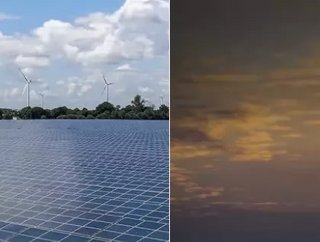Aquila targets energy efficiency in £150 million trust float

Aquila Energy Efficiency Trust has announced plans to raise £150 million in a flotation on the London Stock Exchange.
The trust will invest in energy efficiency assets covering lighting, smart building and metering services, cogeneration plants, heating, ventilation and air conditioning systems, boilers, PV batteries, energy storage solutions and EV and associated charging infrastructure, focusing on values of up to €10 million in the UK, Switzerland and EEA region. It is targeting shareholder returns of between 7.5%-9.5% per year.
Alex Betts, Senior Investment Manager of Aquila Capital - whose renewables portfolio has reached 10GW - said the trust offers an opportunity for investors to gain exposure to a rapidly growing infrastructure sector and it has assembled a diverse €210m Advanced Pipeline which will generate stable cash flows for shareholders and have a significant environmental impact.
"We aim to generate these compelling returns for investors while providing a crucial service in reducing primary energy consumption and CO2 emissions while delivering economic savings for clients and supporting the transition to an economy driven by efficient and clean energy systems," he said.
Roman Rosslenbroich, CEO of Aquila Capital, said its energy efficiency strategy is the lateral connection of its investment capabilities in renewables and real estate.
"Energy efficiency is the 'First Fuel', it touches all parts of the economy and lies at the heart of addressing climate change," he said. "In our day-to-day interactions with investors we see a substantial and continuous appetite for European energy efficiency investments which are characterised by an attractive and stable risk return profile due to largely contractually fixed cash flows and very limited exposure to fluctuations in the financial markets."
The European Commissioner for Energy, Kadri Simson, recently encouraged member states to take advantage of the European Union’s "historic" €1.8 trillion budget and recovery fund to invest in energy efficiency. Some of the breadth of funds available can be read here. More scrutiny is being placed on buildings which account for 40 percent of energy consumption.
It is estimated that an additional €275 billion per year will be necessary over the period 2021-2030 to reach the EU's energy and climate objectives for 2030.
Energy investments face new risks from funding and financing, particularly as capital in fossil fuels decreases. Alongside projecting revenues and earnings to support new expenditures on corporate balance sheets, companies must assess how well debt and equity can be raised to supplement corporate and government funds.
The Commission, in collaboration with the Energy Efficiency Financial Institutions Group (EEFIG), has developed two products that aim to inform financial institutions, investors and project promoters about the real benefits and risks of energy efficiency investments.
The De-risking Energy Efficiency Platform (DEEP) is a pan-EU open-source database containing detailed information and analysis of over 10,000 industrial and buildings-related energy efficiency projects. It builds performance track records and helps project developers, financiers, and investors better assess the risks and benefits of energy efficiency investments across Europe; and The Energy Efficiency Financial Institutions Group (EEFIG) Underwriting Toolkit, a guide to value and risk appraisal for energy efficiency financing, was launched in June 2017.
The UK Government has announced a raft of measures including a public sector decarbonisation scheme, green homes grants, green jobs challenge fund, direct air capture funding and automotive transformation fund.
Moreover the IEA warns that energy efficiency investment "is not enough to meet sustainability goals" and reduce the effort required from energy supply. Primary energy intensity needs to drop by an average of 3.6% annually to deliver on climate goals.






